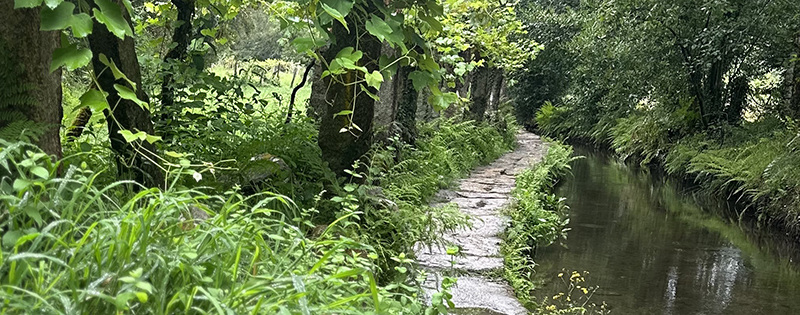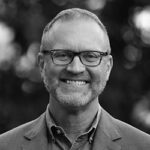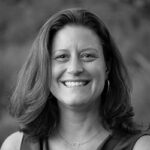
Fuller Seminary has always been about the work of forming people into the image and likeness of Christ. It is our hope, prayer, and expectation that by educating persons in the gospel, we are equipping them to serve God’s kingdom in their particular social locations. Over the years, Fuller (along with many other seminaries) has realized that we want to holistically form our students. Yes, we want to academically form them, but we also want to form them spiritually, vocationally, interculturally, and emotionally.
A hallmark of Fuller’s formational ethos is embodiment. If you are a student at Fuller, you are bound to hear in numerous settings that we are human bodies and that this reality matters! What we do with our bodies, what is done to our bodies, and how our bodies are impacted by events altogether shape and form us into the people we are becoming. For example, threatened bodies learn to be suspicious and scared; they interact in the world through an understandable lens of fear. Bodies impacted by love not only have a more optimistic view of the world and enter into relationships with greater trust, but they also are better able to risk loving themselves.
Formation, therefore, must include what we do with our bodies. We don’t think our way to spiritual formation; we embody our way toward it. In Fuller’s Division of Formation where we work, we take this very seriously. We teach ancient spiritual practices, provide retreats, and engage in embodied experiences such as group spiritual direction and spiritual formation groups. This last August, we engaged in a truly embodied spiritual practice: pilgrimage.
Twenty-two of us traveled to Spain to walk approximately 72 miles of the Camino de Santiago, an ancient pilgrimage connected to the apostle James. The walk ends in Santiago at the site of a beautiful cathedral erected over the site of James’s tomb. We walked and prayed and sang and talked with Jesus, then walked some more and prayed some more and felt the pain in our bodies and remembered Christ’s walk to Golgotha. For six glorious days, we walked our way in the path of spiritual formation and found our Way. We were changed.
How were we changed? Some pilgrims found clarity related to vocation. Some experienced grief and closure with deceased loved ones. Some reconnected with Christ by the sheer time spent in silence listening to the Spirit in them, through nature and even through pain. Some realized that their life priorities were askew and came back ready to reorganize their lives to center on what is most important. The Way was made by walking.
What we all realized is that the real pilgrimage is our ongoing lives. We are all on pilgrimage right where we are. You don’t have to go to Spain or walk a famous route (though we highly recommend it) to get back on the Way. It is our prayer that you will find your own Camino, your own embodied way of listening, looking, and finding Christ’s leading. We hope that you will do so through your lived embodied life because embodied formation matters. It is the way that the Way is made.

Brad Strawn, chief of spiritual formation and integration, dean of the chapel, and Evelyn and Frank Freed Professor of the Integration of Psychology and Theology.

Amy Drennan, executive director of vocation formation and affiliate professor in the School of Psychology & Marriage and Family Therapy.
Fuller Seminary has always been about the work of forming people into the image and likeness of Christ. It is our hope, prayer, and expectation that by educating persons in the gospel, we are equipping them to serve God’s kingdom in their particular social locations. Over the years, Fuller (along with many other seminaries) has realized that we want to holistically form our students. Yes, we want to academically form them, but we also want to form them spiritually, vocationally, interculturally, and emotionally.
A hallmark of Fuller’s formational ethos is embodiment. If you are a student at Fuller, you are bound to hear in numerous settings that we are human bodies and that this reality matters! What we do with our bodies, what is done to our bodies, and how our bodies are impacted by events altogether shape and form us into the people we are becoming. For example, threatened bodies learn to be suspicious and scared; they interact in the world through an understandable lens of fear. Bodies impacted by love not only have a more optimistic view of the world and enter into relationships with greater trust, but they also are better able to risk loving themselves.
Formation, therefore, must include what we do with our bodies. We don’t think our way to spiritual formation; we embody our way toward it. In Fuller’s Division of Formation where we work, we take this very seriously. We teach ancient spiritual practices, provide retreats, and engage in embodied experiences such as group spiritual direction and spiritual formation groups. This last August, we engaged in a truly embodied spiritual practice: pilgrimage.
Twenty-two of us traveled to Spain to walk approximately 72 miles of the Camino de Santiago, an ancient pilgrimage connected to the apostle James. The walk ends in Santiago at the site of a beautiful cathedral erected over the site of James’s tomb. We walked and prayed and sang and talked with Jesus, then walked some more and prayed some more and felt the pain in our bodies and remembered Christ’s walk to Golgotha. For six glorious days, we walked our way in the path of spiritual formation and found our Way. We were changed.
How were we changed? Some pilgrims found clarity related to vocation. Some experienced grief and closure with deceased loved ones. Some reconnected with Christ by the sheer time spent in silence listening to the Spirit in them, through nature and even through pain. Some realized that their life priorities were askew and came back ready to reorganize their lives to center on what is most important. The Way was made by walking.
What we all realized is that the real pilgrimage is our ongoing lives. We are all on pilgrimage right where we are. You don’t have to go to Spain or walk a famous route (though we highly recommend it) to get back on the Way. It is our prayer that you will find your own Camino, your own embodied way of listening, looking, and finding Christ’s leading. We hope that you will do so through your lived embodied life because embodied formation matters. It is the way that the Way is made.
Brad Strawn, chief of spiritual formation and integration, dean of the chapel, and Evelyn and Frank Freed Professor of the Integration of Psychology and Theology.
Amy Drennan, executive director of vocation formation and affiliate professor in the School of Psychology & Marriage and Family Therapy.
Since Fuller’s founding in 1947, the seminary has striven to send into the world Christian leaders committed to living out Christ’s gospel—to carrying the hope and healing of Christ to the church and to the world.